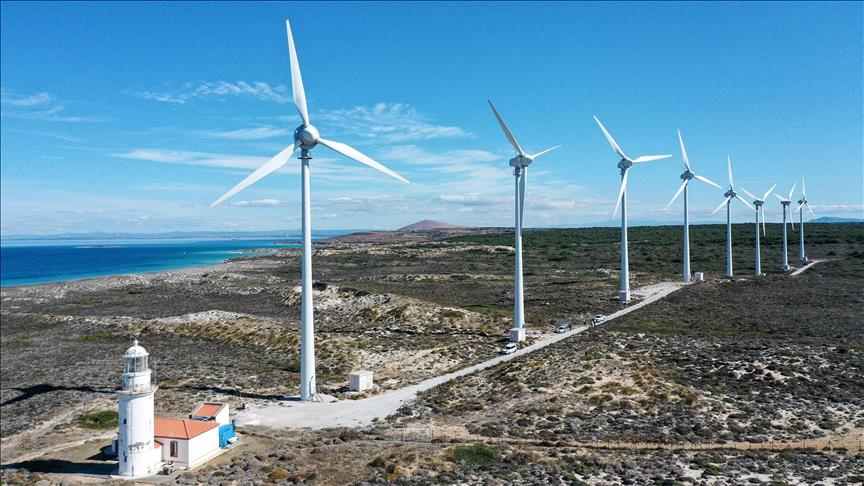Türkiye's wind energy has much greater potential to exceed the 29,600-megawatt (MW) target declared in the country's national energy plan up to 2035, the head of the Turkish Wind Energy Association (TUREB), Ibrahim Erden, said on Tuesday.
His remarks came at the opening ceremony of the 12th Turkish Wind Energy Congress (TUREK 2023), of which Anadolu is a global communication partner.
According to Erden, Türkiye has reduced its dependence on fossil fuels and imported resources over the last 20 years, making a breakthrough in achieving energy independence.
The driving force behind Türkiye's development initiatives is energy, which has taken the country to become among the 20 largest worldwide.
With the opening of the first power plant in 1998, the country’s progress in wind energy has been remarkable since TUREB's founding in 1992. The capacity has increased significantly over the last 15 years, from zero to a current installed power capacity of 106,000 megawatts (MW), placing it sixth in Europe and 12th globally in terms of installed capacity. It is also the fifth-largest in Europe.
Currently, nearly 30,000 MW of capacity has been allocated, but considering the current installed capacity and offshore wind potential, the country’s total wind energy potential could reach 45,000 MW.
- Türkiye is good base to provide raw materials for Europe
Giles Dickson, the CEO of WindEurope, asserted that European politicians would like to have a European wind energy manufacturing base to build wind turbines rather than rely on China.
He said the goal of the European Union is to increase wind power generation in Europe from its present 17% share to a point where wind power produces most of the continent's electricity.
As a testament to this goal, he said European Commission President Ursula von der Leyen announced the European Wind Energy Action Plan in October in support of wind energy in Europe through a wind power package containing a series of 15 very specific actions and measures to specifically increase competitiveness and the growth of Europe's wind energy industry.
From a financial aspect, Dickson said a wind turbine “made in Europe” would contribute to the €13 million on average of economic activity.
“It is not in our collective interests for those economic benefits to be transferred outside of Europe,' he said.
According to Dickson, the European Union is looking to Türkiye to help them expand their wind energy, as it would provide an ideal base for the provision of raw materials to Europe to reduce its dependency on China.
He further expressed his gratitude to Türkiye for its outstanding efforts in the development of wind energy.
By Firdevs Yuksel and Duygu Alhan
Anadolu Agency
energy@aa.com.tr


